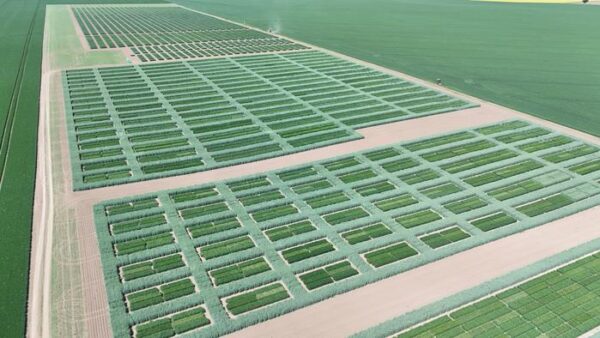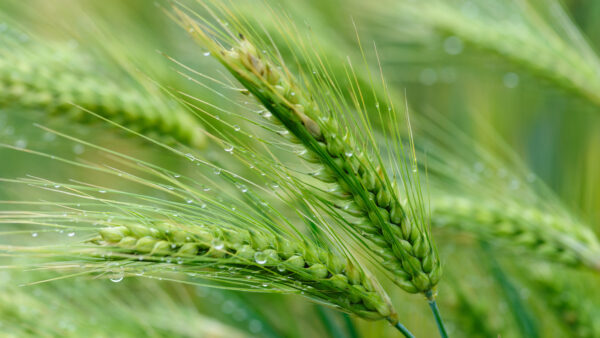Following the rejection of the first Commission attempt to modernise the seed marketing legislation in 2013/14, the Council of Ministers in 2019 requested the Commission to carry out another study on the need and options available to update the legislation on the production and marketing of “plant reproductive material” (PRM).
During the subsequent development of the study and the associated various stakeholder consultations, Euroseeds continuously underlined the sector’s strong support to maintain the pillars of the existing legal framework for variety registration and seed marketing, ensuring the continuous development and marketing of improved varieties through dedicated identity (DUS) and performance (VCU for agricultural species) assessment, and proper seed quality guarantees through certification or high-quality standards and respective testing, including phytosanitary controls. The industry also stressed the importance of keeping the EU rules well-aligned with international conventions and standards, given the global nature and leadership of Europe’s seed sector.
It quickly became clear during the consultation process that the Commission placed a specific focus on the (potential) contribution of seed to the overarching sustainability goals of the Green Deal and its Farm-to-Fork and Biodiversity strategies as well as on seed diversity and options for more flexibility to accommodate niche market actors and needs. Euroseeds reiterated contribution of breeders to sustainability and that this contribution is successfully supported by the current legislation. While some adapted rules for specific markets already existed, we remained categorically opposed to any blanket exemption of commercial activities or seed products from the legislation.
The proposal

The proposal, published on 5 July 2023, clearly aims at consolidating existing EU legislation through a single regulation, enhancing harmonisation and alignment with other regulations like those on plant health and official controls. But it also focuses strongly on sustainability goals and on facilitating the marketing of “diverse” PRM. It maintains variety testing, registration, and seed certification standards as principal pillars while providing numerous derogations for specific material, users, and markets, such as e.g., conservation varieties, heterogeneous material, organic varieties, PRM marketed to non-professional users or exchanges “in-kind” between farmers or conservation networks. However, all these derogations remain firmly within the scope of the legislation, fall under the general plant health rules, and require reporting to Member States and the Commission. As a fundamentally new element, the proposal introduces a new “Value for Sustainable Cultivation and Use” (VSCU) requirement, which is extended beyond the traditional agricultural species and shall now apply also to vegetables, fruits, and wine.
At first glance
Euroseeds welcomes that the Commission’s proposal maintains the long-standing and well-functioning elements of the EU’s legal framework for variety registration and seed marketing. This ensures the continuous development and market release of improved varieties and high-quality seed supply for farmers and growers. Similarly, we welcome that the alignment with international conventions and standards is maintained, safeguarding the leading position of EU-based companies regarding seed exports to third countries and the movement of PRM into the EU. In essence, the proposal maintains the requirements for proper identification (DUS or officially recognised descriptions) of all PRM, performance assessment (VSCU), seed quality guarantees (Certified Seed/Standard Seed), and phytosanitary controls.
The industry also supports the modernisation of governance by involving the sector in the execution of specific tasks under official supervision which should lead to cost savings at both private and official levels. Similarly, we support the improved process for granting equivalence status for PRM from third countries, providing subsidiaries of EU-based companies with necessary supply safeguards under increasingly challenging environmental conditions.
It is also a positive step that all PRM now clearly fall under the relevant specific legislation, ensuring that any PRM product conforms to appropriate identification, performance, technical quality standards, and the absence of pests and diseases. This is an important quality and customer assurance for any user of PRM, regardless of production or marketing standards.
Euroseeds acknowledges the need for derogations and specific standards for defined markets, materials, and users if the principal elements of proper identification, quality information and plant health control are observed. We consider the general information and obligation for all market segments as a potentially useful element for future policy initiatives.
So, it seems that there are many positive elements in the proposal, but….
Taking a closer look
Still, there are numerous elements of the proposal that require further clarification and/or change to arrive at a text that can be supported by the entire seed sector.
Most importantly, some basic definitions require precision, such as e.g., the term “marketing” which should be properly re-formulated to assure that movement of pre-commercial PRM for processing (cleaning, seed treatment and packaging) and re-export can continue unimpeded. Similarly, it must be clarified that the supply of trial seed (marketing in advance of listing) is not aimed at commercial exploitation of that seed and must not be unnecessarily restricted.
Euroseeds clearly opposes the provisions that establish an unpredictable carte blanche for Member States to decide on the usefulness of specific traits (e.g., herbicide tolerance) and establish cultivation conditions for varieties carrying such traits. This would create severe legal and commercial uncertainty for breeders and run counter to the need for long-term investments. We also oppose that competent national authorities may renew a variety registration on their own initiative, as the provision is unspecific and lacks clarity regarding responsibility for maintenance and IP status of the variety in question.
Euroseeds will also propose several smaller improvements to the text to clarify definitions and ensure that essential practices for PRM supply are properly specified, e.g., regarding provisional germination tests for autumn-sown crops, differentiation of rules for heterogeneous material that take proper account of the biology of the different species to assure that it does not harm the well-functioning market in key European crops such as forages and grasses.
Most importantly, it needs to be discussed whether the Commission’s approach to a new compulsory VSCU testing for all species is both justified and manageable in practice. On the one hand, the exclusion from such obligations under some of the derogations clearly lacks logic and/or consistency; on the other, it is still very unclear how this new provision could be developed across the highly diverse and often rather small market segments typical for the vegetable sector. Here, it must be ensured that the apparent desire for a “one size fits all” approach is amended in a way that corresponds to the diversity of species and their biology as well as market needs and the overall objective of broad diversity.
To ensure that all these elements are duly taken into consideration in the political discussions over the coming weeks and months, it is imperative that Europe’s seed industry is highly engaged at both the EU and national levels. The time to act is now!
Editor’s Note: Jared Onsando is Technical Manager Variety Testing and Registration at Euroseeds












